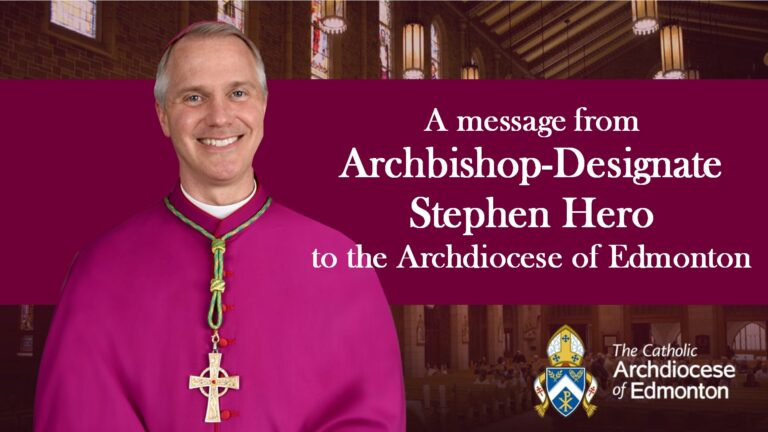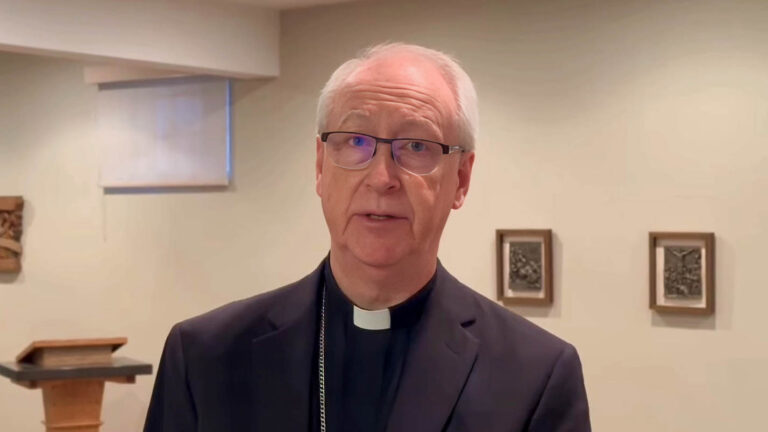Fourth Sunday in Ordinary Time – Year B
“Come and See” Weekend
Homily
[Deuteronomy 18:15-20; Psalm 95; 1Corinthians 7:32-35; Mark 1:21-28]
We are pleased to welcome to our seminary you, who are seeking to discern how the Lord Jesus is calling you to follow him. Before all else, I would like to express to you my deep gratitude for your readiness to receive from our Lord the decisive direction of your life. There is no other path to joy than that of heeding and following the voice of the Good Shepherd.
Your weekend here at the seminary offers you two important helps for your discernment. The first is meeting the seminarians and formation team so that you get a taste of life in seminary. That has unfolded over the last two days. Here in this mass, you now receive the second, and more fundamental, help, namely, that which is offered in the Word of God just proclaimed. It gives exposure not to life in the seminary but life in Jesus Christ. It is critically important to grasp what the sacred texts are teaching about our Lord, because knowing Jesus and his mission is the heart of Christian life and is, therefore, foundational to the discernment of all vocations in the Church. In other words, there is more to your weekend here than “coming to see”. The primary motivation for our time together is to “come and listen” to what the Word of God is teaching about the One who calls us, and to receive support as we give our response.
A necessary key to understanding the gift and wonder of Jesus is given in the first reading. Taken from the Book of Deuteronomy, it contains a prophecy, spoken by Moses, that gives beautiful insight into the mystery of our Lord. What Moses says is this: “The Lord your God will raise up for you a Prophet like me from among your own kin; you shall heed such a Prophet.”
What is the meaning of that phrase, “a prophet like me?” Moses was unique among the prophets in that he spoke personally with God. No one in the history of the chosen people had dwelt in such intimacy with God. From that closeness he brought God’s revelation to the people, particularly in the Ten Commandments. But the intimacy enjoyed by Moses had its limits. Recall that, when at one point Moses asked to see the face of God, God allowed him to see only His back (cf. Exodus 33:18-23). God’s revelation, then, was not yet complete. For this the people, the world, needed to wait for a prophet “like Moses” to bring the revelation of God to completion.
Jesus is the fulfillment of that hope because of who he is. He is like Moses, yes, in the sense that he brings God’s revelation to the people from the intimacy he shares with God, but his closeness to God is infinitely greater than that of Moses. He is the Son of God, sent to the world from the very heart of the Father. He is the Son who shares the same divine nature as the Father. He and his Father are each God. This communion is affirmed by Jesus himself when he says in the Gospel of John that he and the Father are one, and that to see him is to see the Father. What we know also from the Gospels is that Jesus is the Son sent not only to reveal the Father but also to draw us to union with himself, the only Son, so that, in him, we might become the sons and daughters of our heavenly Father (cf. Benedict XVI, Jesus of Nazareth, pp. 1-8).
This explains what is unfolding in the passage this morning from Saint Mark. There we hear how Jesus speaks with an authority that astonishes those who hear him, and with but a word casts out from a man an evil spirit. Because of who he is, the Son of the Father, Jesus is speaking with an authority that belongs to God alone, and with words filled with divine power. In this particular passage he is acting to dismantle the powers of evil, to overcome the malevolent forces that separate people from God. He is clearly set on the accomplishment of his mission to destroy the power of sin and evil and reconcile humanity to God in a communion of love.
Wondrously, Jesus calls the members of his Church to participate in his mission! His first call is to open our hearts to his love and allow his mission to find fulfillment in our own lives. This means acknowledging in all humility and truth our absolute need for him, to receive from him new life, and to surrender the entirety of our lives to his divine authority and saving grace. The new life in Jesus Christ begins with Baptism. Then, from within this communion of life with him, Jesus calls us to a certain participation in his mission by making him known and witnessing to the power of his love. Our love for Jesus Christ, and above all knowing that we are loved by him without measure, makes us ready and eager to receive from him our particular call, and respond to it with joy.
Be open, then, to however the Lord is calling you. There is nothing more important than participation in the Lord’s mission to save the world. Neither is there anything more exciting or urgent. If the Lord is calling you to serve him and his people as a priest, I can assure you that you are being summoned to a way of life and ministry that is immensely fulfilling. In the midst of the People of God, the priest stands as an icon of Christ, the Head of the Church. He serves the mission of Christ by teaching God’s people the wonders of the faith, sanctifying them through the sacraments, and preserving them in a communion of life and witness. To paraphrase Saint Paul, it is a life that requires from us our all, admitting of no distractions from the mission. A demanding call, certainly, but one that is extraordinarily beautiful.
And do not be afraid of the Lord’s summons. Trust in his love for you. He knows the path that is best for each of us, and unfailingly provides all the gifts needed for the task to which he calls. Above all, he provides us with the gift of himself, here in the Eucharist. He who calls remains always with us to be our guide and our strength. In our celebration of this mass, then, let us all pray for the grace of peaceful openness to his call, and of readiness in faith to follow where our Lord leads us.
Most Reverend Richard W. Smith
Saint Joseph Seminary
January 28th, 2024


